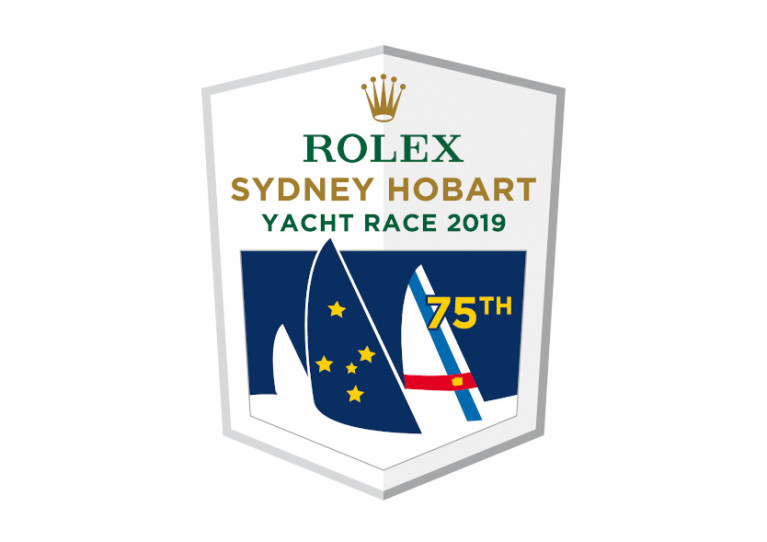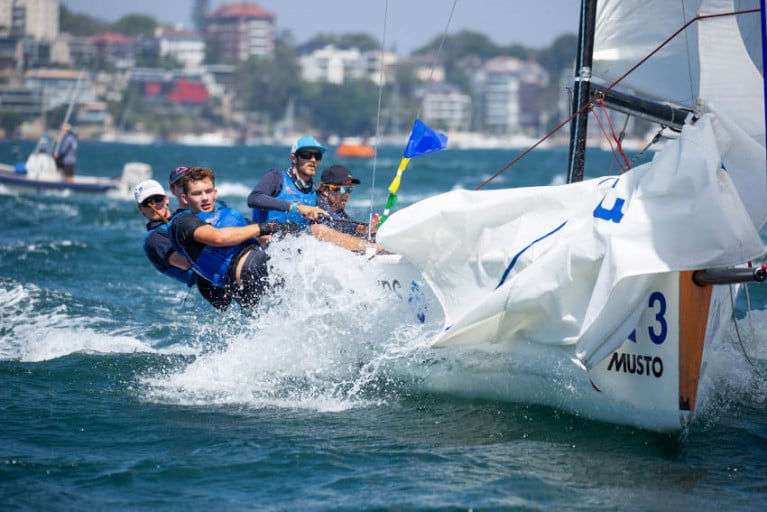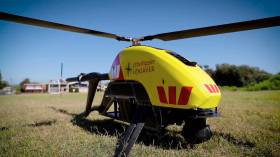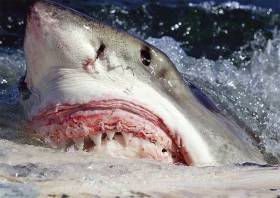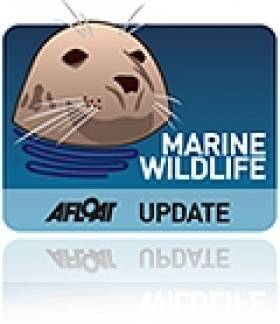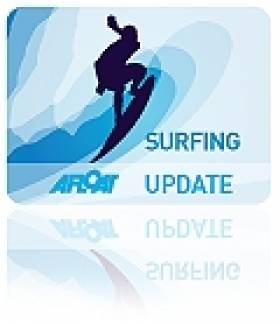Displaying items by tag: Australia
Australia Crash Out Of SailGP’s Christchurch Grand Prix After Turning Into Course Mark - But Move Avoids Greater Catastrophe
Australia’s SailGP team suffered a massive collision that forced their retirement from the second annual New Zealand Sail Grand Prix in Christchurch at the weekend.
As Marine Industry News reports, Tom Slingsby and his crew were rocked by the collision with a course mark during the first fleet race on Sunday (24 March) — a so-called ‘Super Sunday’ due to the cancellation of Saturday’s racing over dolphins on the racecourse.
While the crash was a devastating blow for the team, who celebrated victory in their home event last month, it could have been much worse for them and for Canada’s F50 as it was the result of a split-second manoeuvre to avoid a catastrophic clash between the two boats.
“It all happened so quickly but at that moment I knew that we were going to hit Canada, so I had a choice to make and I wanted to keep people safe so I turned the boat as hard as I could into the course mark,” Australia Team driver Slingsby said. “I knew the mark was there but it was either that or go straight through Canada.”
New Zealand’s Peter Burling and crew went on to take the victory in their home race in this ninth round of the SailGP’s fourth season.
Marine Industry News has more on the story HERE.
Australian Harbour Testing Its Potential as Tidal Energy Hub
A harbour near Melbourne in Australia is probing the potential of its natural tides to develop a new kind of renewable energy hub.
As the Bellarine Times reports, Queenscliff Harbour has partnered with the non-profit Southern Ocean Environmental Link and tidal turbine maker Altum Green Energy to install a device near the harbour’s marina.
The area of Port Phillip Heads, also known as The Rip, is at the narrow entrance to the large bay on which Melbourne lies to the northeast.
Its large tidal flows make it a treacherous stretch for boating and shipping, but a potentially rich one for generating power from the sea.
The joint project is currently collecting measurements at the location to determine its potential and best positioning for the Altum turbine, which is designed to operate in slow-flowing waters such as at ports and bridges, rivers, canals and islands.
The Bellarine Times has more on the story HERE.
Ker 40 Sinks Off Wildfire-Ravaged New South Wales Coast
Reports have come from Australia that a Ker 40 was sunk off the coast of New South Wales on Sunday (5 January) following last week’s Rolex Sydney Hobart.
All crew were reportedly picked up safe at Port Kembla after the incident in the ears hours of Sunday local time, in which the boat’s keel was said to have been damaged amid strong winds and smoke from the bushfires that have been ravaging much of the country in recent weeks.
Further details cannot be confirmed as of this time.
Royal Irish YC Cadet Representing Dublin Club In New Zealand Hails Recent Sydney Match Racing Events
Royal Irish Yacht Club cadet member Niall Malone has sent the club an update of his recent competitions in New Zealand, where he currently lives and races.
First up was two weeks of racing in Sydney, Australia last month — at the Harken International Youth Match Racing Championships hosted by the Royal Prince Alfred from 18-22 November, and the Musto Youth Match Racing Internationals at the Cruising Yacht Club of Australia from 26-29 November.
“We had a good two weeks racing in a very close fleet in Sydney,” Niall says, hailing the “extremely high level of sailors” at both events.
Musto was his team’s first ever Grade 1 event, the helm says, so it was “a great opportunity just to be among such a good fleet and we were able to learn a lot”.
Despite neither event seeing him get the results hoped for, the young Irishman is proud that he “had some very close races, finishing less than half a boat length behind the world number two [New Zealand youth Nick Egnot-Johnson] and taking two wins of the Musto Youth International defending champion Frankie Dair”.
Next up for Niall will be the first ever New Zealand Foiling Match Racing Championships, being held at the Royal New Zealand Yacht Squadron from 13-17 January, in which he will be representing the RIYC.
‘Little Ripper’ Drone Rescues Australian Swimmers In World First
#Drone - Beach lifeguards in Australia used a drone to rescue two swimmers in distress in what RTÉ News hails as a world first.
The ‘Little Ripper’ was launched from Lennox Head near Brisbane earlier today (Thursday 18 January) as lifeguards were readying for a training session in the use of such drones in rescue scenarios.
When two teenagers were caught in a swell outside the safety flags, the drone flew out to the swimmers and dropped an inflatable ‘rescue pod’ and were pulled back to shore in just over a minute.
The rescue was a first for the remote-piloted mini aircraft that’s more commonly used to spot sharks off Brisbane’s popular beaches.
Drones have also been hailed as a potential revolution for coastal rescues in Ireland, as previously reported on Afloat.ie.
Drone used in rescue of teens sucked out to sea in Australia. pic.twitter.com/1BVpoQI0TA
— RTÉ News (@rtenews) January 18, 2018
Wexford Man Nominated For Top Award After Rescuing Best Friend From Shark Attack
#Surfing - An Irishman has been praised for his heroism after saving his best friend from an attack by a great white shark in Australia just over a year ago.
As Independent.ie reports, Shane de Roiste leapt into action when his friend Dale Carr was bitten by the ferocious ocean predator while the pair were surfing off Port Macquarie in New South Wales.
"It really is like you see in the Jaws movies," said Wexford man de Roiste recalling that fateful day in August 2015. "The person is just shaken around in the water.”
Carr finally fought off the shark by jamming a thug into one of its eyes, but we was left with a severe bite on his thigh and was losing a lot of blood.
De Roiste remained with his friend throughout, paddling him back to shore and using laces from the fins of Carr's body board to keep the wound closed till help arrived.
The Irishman has now been nominated by his friend for a Pride of Australia award, the winners of which will be announced this November.
The attack just over a year ago was one of a number of incidents reported in the eastern Australian state in the latter half of 2015.
Independent.ie has more on the story HERE, while de Roiste shared his story with Matt Cooper on Newstalk's The Last Word yesterday evening.
Irish Tourist Dies After Houseboat Fall In Australia
An Irish tourist has died after a fall from a houseboat in Australia earlier today (Saturday 23 January), as RTÉ News reports.
The 27-year-old man, who has not yet been named, is understood to have fallen from the top deck of the houseboat on the Murray River between New South Wales and Victoria, and may have hit his head as he fell.
RTÉ News has more on the story HERE.
Drones To Patrol Shark-Threatened Beaches In Australia
#MarineWildlife - Airborne drones will soon be used to patrol stretches of the Australian coast popular with Irish emigrants and holidaymakers that have seen numerous great white shark attacks over recent months.
According to BBC News, the New South Wales government will deploy drones with GPS and cameras providing a live feed to operators who can recommend action to close beaches to bathing and watersports as necessary.
The drones will work in tandem with a 'smart' drum line that will alert officials on the shore as soon as a shark is snagged on its baited hooks.
"We are delivering on a commitment to test the best science available, including new technologies, as we try to find a long term-term solution to keep our beaches safe," said NSW minister for primary industries Niall Blair.
BBC News has more on the story HERE.
Enormous Sharks Shut Australian Beaches For The Week
#MarineWildlife - Great white sharks that could "bite a person in half" have seen the closure of a stretch of beaches north of Sydney for more than a week, as TheJournal.ie reports.
One shark in particular, thought to be some five metres in length, is the largest ever spotted in the waters off Newcastle, some 160km north of Australia's biggest city.
Similarly sized sharks have also been witnessed nearby feeding on dolphins, with one of the ocean predators described as being "as big as a car".
For safety reasons, all beaches in these areas have been closed to bathing and surfing – popular activities for Irish expats and locals alike – until 24 hours have passed with no sightings.
TheJournal.ie has more on the story HERE.
#Surfing - An Irish surfer who went missing off the east coast of Australia last summer underestimated the dangerous conditions, an inquest has heard.
As previously reported on Afloat.ie, Stuart Butler was swept out to sea in a rip current while surfing with friends near Tallow Beach, south of the Gold Coast in New South Wales on 19 July. His body has not been found.
According to ABC News, neither Butler nor his friends were experienced surfers, and the survivors told the inquest that they did not appreciate the dangers till they had already paddled out.
"[Butler] was pretty panicky, had frozen up a bit... was pretty scared to be honest," said Michael Fuller, who himself was found by rescuers on rocks at the base of Cape Byron with minor injuries.
ABC News has more on the story HERE.



























